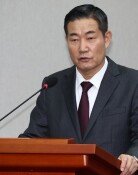Korea constrained by 52-hour workweek regulation
Korea constrained by 52-hour workweek regulation
Posted November. 04, 2024 07:51,
Updated November. 04, 2024 07:51

Korean semiconductor companies are increasingly criticized for being constrained by regulations such as the 52-hour workweek. Nvidia’s dominance in AI semiconductors was confirmed on Saturday (local time) when Intel was excluded from the Dow Jones Industrial Average—a list of the 30 largest companies on the U.S. stock market—and Nvidia was included. Nvidia’s success is attributed to its culture of ‘high-intensity work and extraordinary compensation.’
On Sunday, in Silicon Valley, Nvidia was likened to a “pressure cooker,” according to semiconductor industry insiders. It’s a company known for intense work and high productivity. The 30,000 employees, who call themselves “Nvidians,” often work overtime. Yet the company’s turnover rate last year was just 2.7%, well below the semiconductor industry average of 17.7%.
This starkly contrasts the Korean industry, which is restricted by a 52-hour workweek. According to a survey by the Korea Evaluation Institute of Industrial Technology, Korea's technology level in next-generation semiconductors has declined, from 92.9 in 2019 to 86.0 last year, compared to the U.S. (100), the most technologically advanced country. “Korean researchers have to leave the office even when they come up with an idea after a discussion,” confessed a semiconductor industry insider. There are growing calls for Korea to adopt the white-collar exemption—a rule in major countries that excludes highly paid professionals from certain labor law restrictions.
Do-Young Kwak now@donga.com
Headline News
- Korean business leaders urge a halt to commercial law amendment
- Yoon begins extensive verification for cabinet and staff reshuffle
- Police confirm Pyongyang’s involvement in Ether heist in 2019
- Ukraine fires British Storm Shadows at targets on Russian territory
- Ulsan and Pohang compete to crown Korea’s soccer champions







